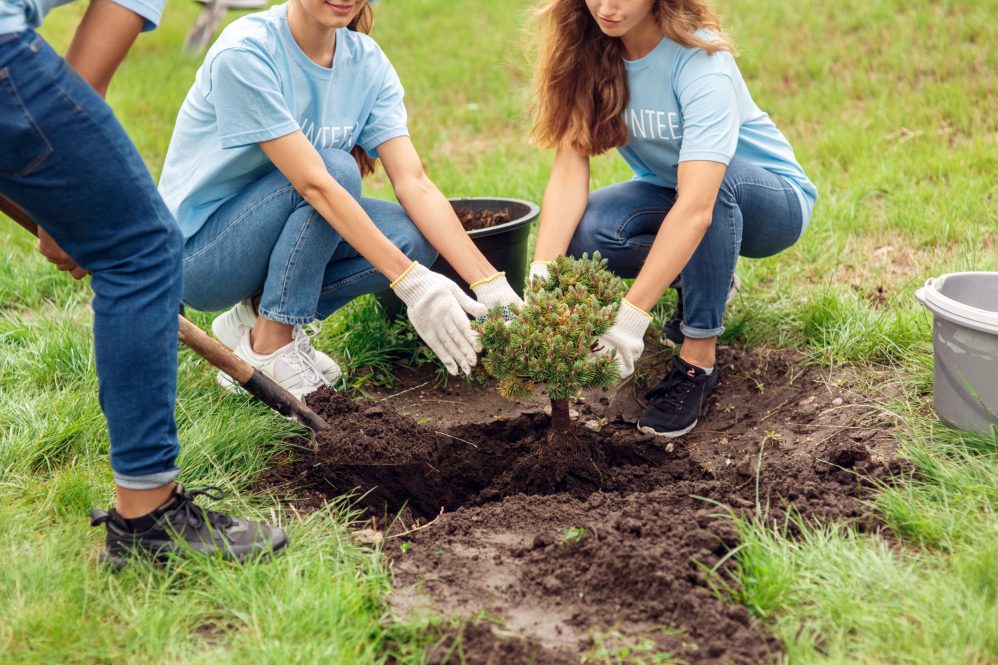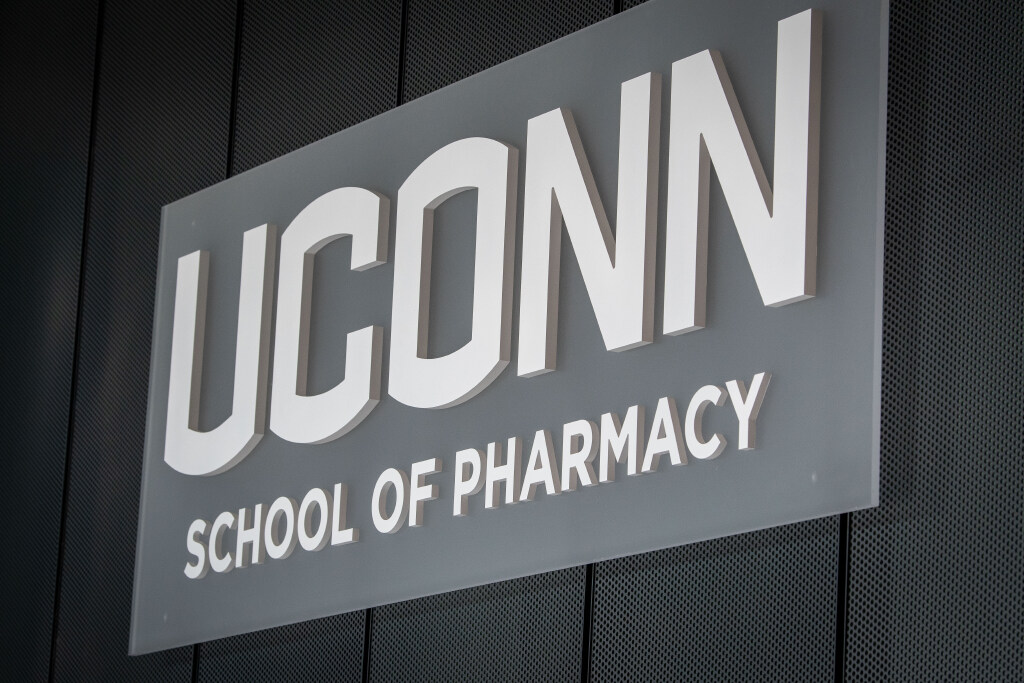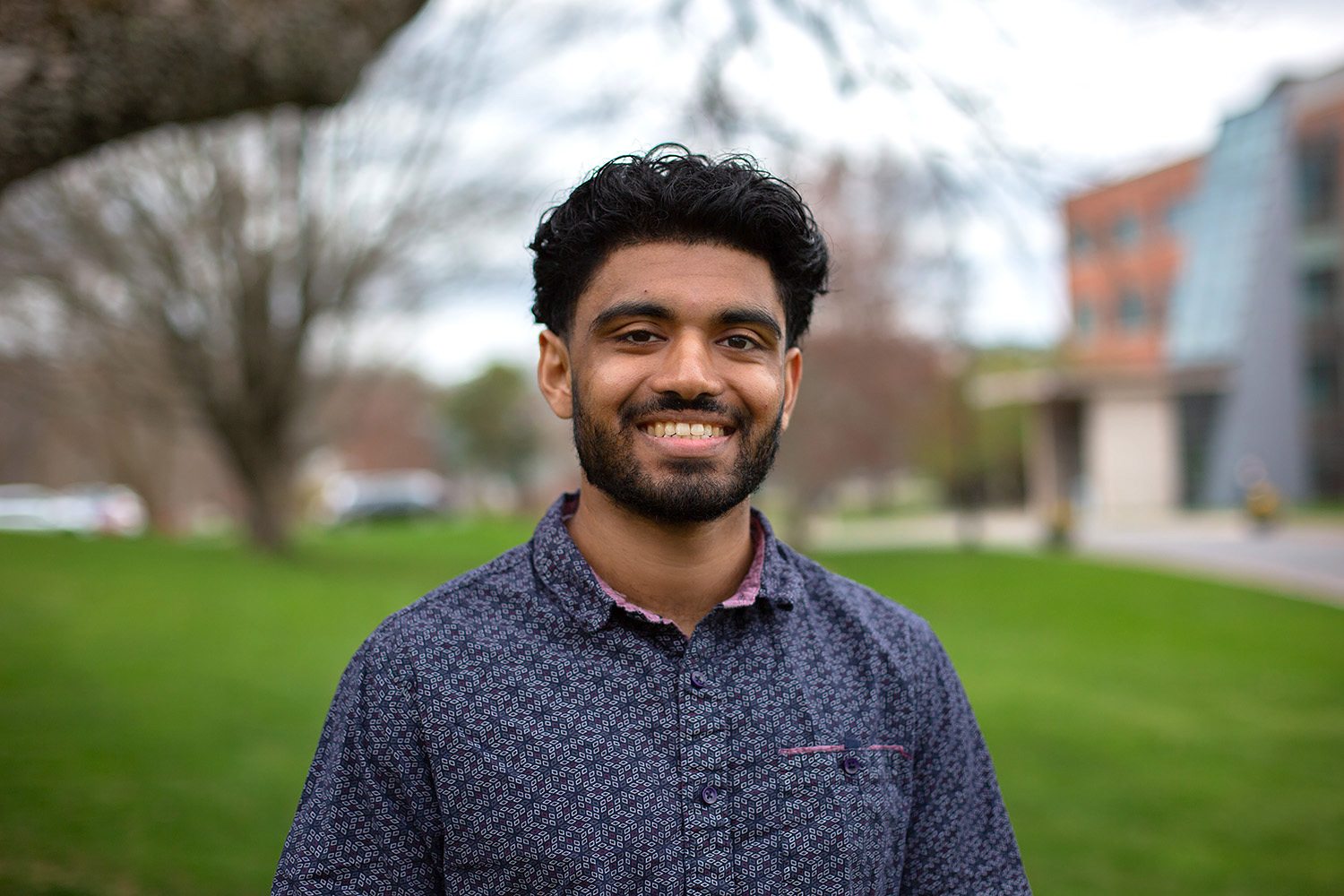Climate change is the biggest challenge humans have faced, and complex issues require collaboration and diverse solutions now. To foster the partnerships and action needed for a sustainable future, UConn researchers convened to share their expertise in the Securing a Sustainable Environmental Future Symposium in October.
Ashley Helton, symposium co-lead organizer, deputy director of the Institute of the Environment, and associate professor in the Department of Natural Resources and the Environment, explains that the idea for the symposium came together when deans from the College of Agriculture, Health, and Natural Resources, the College of Liberal Arts and Sciences, and the School of Engineering met with the leadership of the Institute of the Environment and Distinguished Research Professor in the Department of Ecology and Evolutionary Biology and Emeritus President of the Cary Institute of Ecosystem Studies, Gene Likens, and they collectively realized the need to promote more collaboration for action.
“Together we decided that a symposium highlighting faculty members from across the University, existing research, and the potential for interdisciplinary collaboration across the colleges in the realms of environment and sustainability would be a good idea to explore at this critical juncture for humans and Earth,” she says.
UConn experts, rather than focusing specifically on their own research, presented talks with a broader focus that included forward-thinking solutions in their topic areas, says Helton. The focus areas include climate action, land transformation and biodiversity, water security, and environmental justice.
“The symposium was designed to be an action-oriented conference,” says Co-lead Organizer Likens. “The time for action is now, and not just for more talking. We are talking about climate solutions and climate action. In other words, we’ve heard these wonderful talks, now what are we going to do?”
The keynote speaker was Environmental Defense Fund (EDF) president Fred Krupp, who opened the conference with a talk about his experiences with EDF in solving environmental problems, actions to combat climate anxiety, and what we can do collectively to fight unprecedented challenges of the climate crisis. He says the possibility of important progress exists now more than ever. Krupp also stressed the need to listen and work together, that environmental problems can be solved but cooperation is key. Events like this symposium help to foster this dialogue and catalyze cooperation.
“Our goal was to stimulate creative, forward-thinking solutions-based interdisciplinary collaboration among faculty members from these three colleges of the University,” says Helton.
Professor and Head of the Department of Geography and Chair of the Atmospheric Sciences Group Anji Seth spoke about emissions projections and progress toward reductions since the Paris Agreement, and the need for truly transformative solutions to combat overshooting reduction targets. Professor in the Department of Mechanical Engineering Ugur Pasaguillari presented on current dependence on fossil fuels and current and future alternatives that can be used in a future with lower emissions. Connecticut Sea Grant Extension Educator Emerita Juliana Barrett spoke about adaptation and mitigation needs for communities in Connecticut already facing the impacts of climate change.
On the second day of the symposium, Assistant Professor of Landscape Architecture Sohyun Park presented on the need to preserve biodiversity and opportunities for how to help do this through land transformation in our communities. Assistant Research Professor of Civil and Environmental Engineering and the Human Rights Institute Davis Chacon-Hurtado spoke about the environmental human rights implications of development and the need for sustainable and equitable infrastructure for this and future generations. Professor of Ecology and Evolutionary Biology David Wagner spoke about the erosion of biodiversity and its consequences, and about the actions that UConn students, faculty members, and administrators can take to help preserve biodiversity locally and globally. Professor and Associate Department Head of Marine Sciences Penny Vlahos spoke about the triple threat of climate change, biodiversity loss, and pollution and the impacts on water, as well as adaptation and mitigation strategies. Centennial Professor in Chemical and Biomolecular Engineering and Core Faculty Member in the Center for Environmental Sciences & Engineering Jeffrey McCutcheon spoke about water treatment technologies, concerning emerging contaminants, and solutions to present and future water treatment challenges. Associate Professor in the Department of Natural Resources and the Environment and Core Faculty Member in the Center for Environmental Sciences & Engineering Beth Lawrence presented about wetland restoration and strategies to enhance restoration efforts for these vital ecosystems.
On the third day, Professor and Department Head of Civil and Environmental Engineering Marisa Chrysochoou spoke about tools and policies to guide policies for environmental justice with a focus on measures that can be taken in New England. Assistant Professor of Environment & Human Interactions in the Department of Anthropology Eleanor Shoreman-Ouimet spoke about environmental justice, inequity, and the pressing need to develop disaster preparedness in Connecticut. Assistant Extension Educator of Urban and Community Forestry, Department of Extension Mayra Rodríguez González spoke about the need for community engagement and the disproportionate environmental hazards faced by marginalized communities.
A deans’ roundtable was an important part of the symposium, Likens adds, where College of Agriculture, Health, and Natural Resources Dean Indrajeet Chaubey, College of Liberal Arts and Science Interim Dean Ofer Harel, and Associate Dean for Research and Graduate Education in the School of Engineering Leslie Shor discussed opportunities for interdisciplinary collaborations.
The symposium’s Capstone Speaker was Provost Professor of the Humanities and Board of Trustees Distinguished Professor of Philosophy Michael Lynch, who spoke about how we can communicate about science and climate solutions, and the challenges that face us in the age of denialism and political polarization.
In his closing remarks, co-lead organizer, Board of Trustees Distinguished Professor, and Executive Director of the Institute of the Environment Michael Willig spoke about moving forward and ensuring we, as a university, are on the right side of history by working toward collaboration, education, and deeper listening,
“The symposium clearly highlighted that climate change, land use change, and pollution interact to threaten the persistence of humanity and the health of the planet,” Willig says. “The scientific evidence is incontrovertible, and the window within which human action can make a significant positive difference is measured in a few decades not centuries. This demands action — transformative action – now before it is too late.”
If you are interested in learning more or would like to view any of the presentations, the symposium was recorded, and will be publicly available soon on the Institute of the Environment’s website.
The symposium is co-sponsored by the Institute of the Environment, the College of Agricultural Health and Natural Resources, the College of Liberal Arts and Sciences, and the School of Engineering. The committee includes representatives from each of the three colleges, including Marina Astitha, Ashley Helton, James Knighton, Gene Likens, Wei Ren, Kathy Segerson, Mark Urban, Tim Vadas, and Michael Willig.



